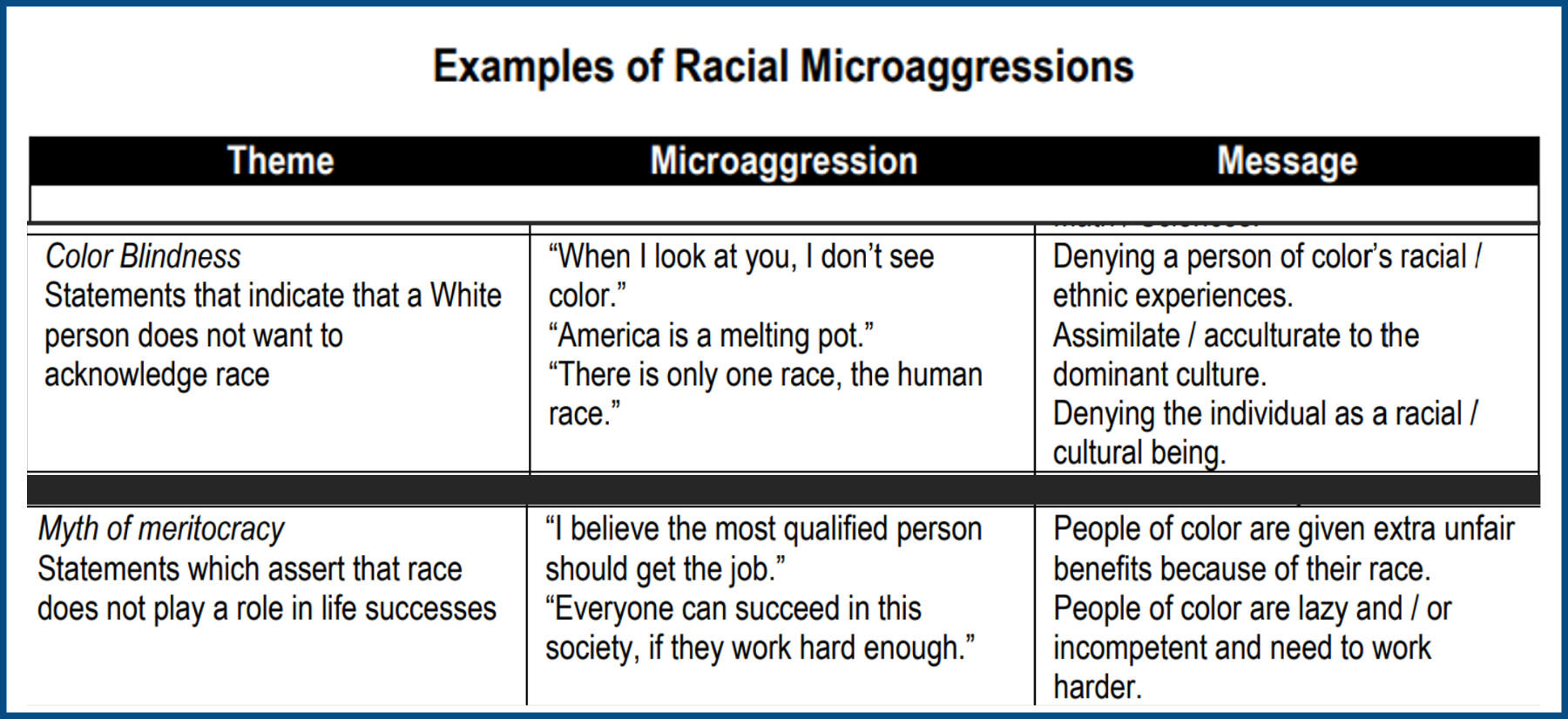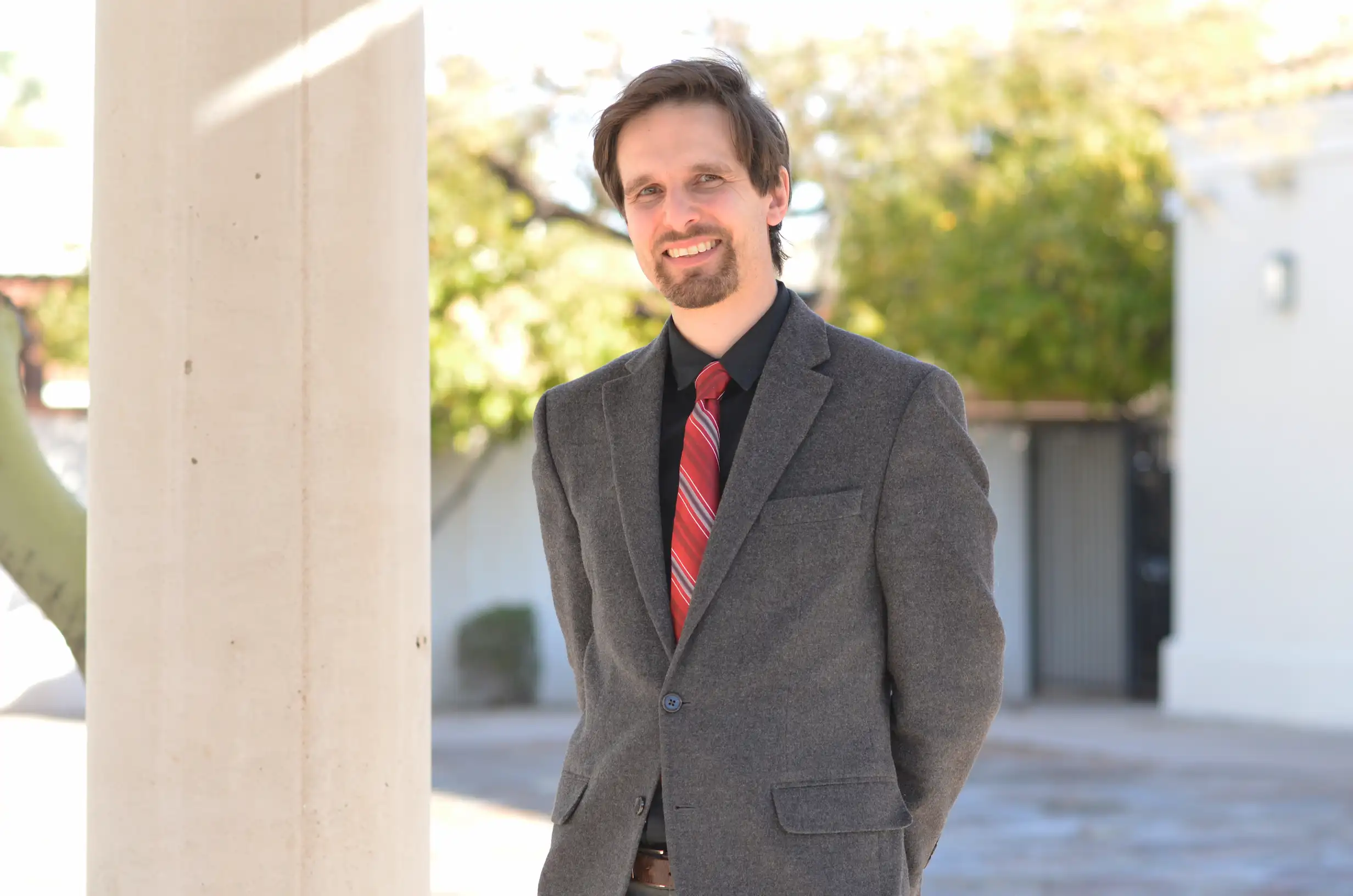Introduction & Executive Summary
Academic freedom is a core pillar of American higher education. Unfortunately, too many institutions are aggressively pressuring faculty to infuse politicized concepts into their instruction while forcing students who simply wish to complete their studies in core fields to enroll in politically divisive programming of minimal academic rigor.
Unfortunately, such trends appear active within Arizona as well. Through a prolonged public records request process with Arizona State University (ASU), the Goldwater Institute has obtained documents revealing the course materials associated with mandatory student programming, specifically at the university’s Cronkite School of Journalism. In a required course for journalism majors, the Cronkite School forces students to sit through lessons on avoiding “microaggressions,” checking one’s “cisgender privilege,” and using
“preferred pronouns.”
Key Takeaways:
- Despite the Arizona state constitution’s mandate to keep public university education “as nearly free as possible,” the ASU Cronkite School’s mandatory “Diversity and Civility” course forces all journalism students to invest time and tuition in support of identity politics, “microaggressions,” “cisgender” privilege, and the use of “preferred pronouns.”
- Course readings define statements such as “America is a melting pot” as examples of offensive microaggressions. Other statements, such as “I believe the most qualified person should get the job” or “Everyone can succeed in this society, if they work hard enough,” are likewise branded as problematic statements communicating that “people of color are lazy and/or incompetent and need to work harder.’”
- Other course readings argue that objecting to men using women’s bathrooms is an example of discrimination against transgender individuals.
- Course assignments include requiring students to develop a PR plan for a hypothetical pop star who uses “they/them” pronouns.
- More than 400 students were required to take this class in fall 2023 alone, with more than 2,000 hours of students’ time spent on the course in just one semester.
- The Arizona Legislature, the Arizona Board of Regents, and the state’s public universities must discontinue such mandatory course requirements and ensure that students’ time and tuition dollars are not diverted away from core academic scholarship. The Goldwater Institute’s Freedom from Indoctrination Act model policy offers a way to prevent courses like this from being required while also protecting academic freedom.
What Is “Diversity and Civility at Cronkite”?
“Diversity and Civility at Cronkite” (DCC) is a required course for at least three of the undergraduate degree programs at the Walter Cronkite School of Journalism and Mass Communication.[1] The online catalog describes the course thusly:
Diversity and Civility at Cronkite
Emphasizes the importance of diversity, inclusion, equity and civility to ensure all Cronkite students feel represented, valued and supported. Offers training and awareness on cultural sensitivities, civil discourse, bias awareness and diversity initiatives at the Cronkite School and ASU. Empowers students to approach reporting and communication projects with a multicultural perspective and inspire mutual respect among students from various backgrounds and beliefs within different Cronkite professional paths.[2]
The course’s title and description make it sound like an innocuous introduction to the Cronkite School. Surely, promoting “diversity” and “civility” are noble goals for an educational institution. But a closer look at the course’s syllabus, assignments, and readings reveals a radical agenda that argues for the primacy of identity and spends large portions of class time on trendy concepts in progressive activism.
Despite the course description’s emphasis on inspiring “mutual respect among students from various backgrounds and beliefs,” the course syllabi for DCC place much greater importance on categories of identity rather than substantive differences in values and ideas. One instructor states, “Diversity and Civility is an entry level course to bring thoughtful, open minded discourse to issues of race, gender, sexual orientation, ability, income, geography, and age.” Another instructor similarly writes, “Diversity and Civility is an entry-level course intended to bring thoughtful, open-minded discourse to issues of race, gender, sexual orientation, ability, income, geography, and other aspects of our identities.” Highlighting the centrality of DCC to the Cronkite curriculum, one syllabus states, “This class sets the tone for your Cronkite interactions…Think of this class as the first step in your DEI—diversity, equity, and inclusion—practice as a journalist or communications professional.”
The “Learning Outcomes” on the course syllabi also foreground identity categories: “By the end of this course, students will be able to … understand the value of their own and other people’s identities in terms of the work and study at Cronkite.”
The course schedule reflects this preoccupation with identity, as evidenced by the titles of the course’s seven units, as shown in Figure 1:
- “Introduction”
- “Race & Ethnicity”
- “Geography and Income”
- “Language & Citizenship”
- “Sexuality and Gender Identity”
- “(Dis)ability”
- “Differences and Conflict”
Figure 1

Excerpt from DCC Syllabus.
DCC thus sees diversity as primarily concerned with categories of identity rather than substantive differences in ideas and beliefs. As we will see, the assigned readings and activities in the course promote the idea that someone’s race, gender identity, and sexuality are the most important aspects of his or her experience.
What Do Students Learn in DCC?
Microaggressions
The second unit of DCC includes the learning objective “Learn what microaggressions are and why they matter.” Students are asked to review a list of “typical microaggressions” published on a University of Minnesota webpage.[3] According to a common definition, “microaggressions are the everyday slights, insults, putdowns, invalidations, and offensive behaviors that people experience in daily interactions with generally well-intentioned individuals who may be unaware that they have engaged in demeaning ways.”[4] Perhaps the Cronkite School wants to prevent offensive and unwarranted comments directed toward students. However, scholars such as prominent social psychologist Jonathan Haidt have argued that the emphasis on microaggressions in higher education has the effect of actually hurting students’ mental health by encouraging them to see put-downs and slights in every interaction, even the most innocent and uncontroversial. This sensitivity makes it difficult to engage in discussions of challenging concepts because students are trained to reject instantly anything that seems problematic.[5] As the definition indicates, a person can commit a microaggression even if he or she has no ill intent, as long as the recipient of the communication judges it to be offensive.
What microaggressions does DCC want students to avoid? Troublesome statements apparently go beyond insensitive comments explicitly based on a person’s race or ethnicity. As shown in Figure 2, the list includes:
- “America is a melting pot,” a statement that demands that people “assimilate/acculturate to the dominant culture.”
- “There is only one race, the human race,” a statement “denying the individual as a racial/cultural being.”
- “I believe the most qualified person should get the job,” a statement communicating that “people of color are given extra unfair benefits because of their race.”
- “Everyone can succeed in this society, if they work hard enough,” a statement communicating that “people of color are lazy and/or incompetent and need to work harder.”
Figure 2

Excerpts from an assigned reading in DCC. “Examples of Racial Microaggressions,” University of Minnesota School of Public Health, accessed February 19, 2024, https://sph.umn.edu/site/docs/hewg/microaggressions.pdf.
DCC thus defines common expressions of American values—such as the idea that individuals should be judged on their merit, not the color of their skin—as offensive microaggressions. As noted above, the DCC syllabus states that the course “sets the tone for your Cronkite interactions.” Unfortunately, it appears to be policing the expression of basic American values at the Cronkite School.

Sexuality and Gender Identity
As shown in Figure 3, DCC dedicates an entire week of the course to a discussion of “sexuality and gender identity” with the following learning objectives:
- “Understand the difference between sexuality and gender identity and why it matters.”
- “Recognize privileges related to sexuality and gender identity.”
- “Know how to ask for and why to use a person’s pronouns and the benefits of gender-neutral language.”
Figure 3

Excerpt from DCC online course materials.
DCC requires students to read “A Guide to Gender Identity Terms,”[6] an article stressing the importance of asking for someone’s preferred pronouns and using those pronouns correctly. You should offer your own pronouns first, the article advises, and then ask for the other person’s pronouns. “While it can be awkward at first,” the article reassures the reader, “it can quickly become routine.”
The article also defines several terms related to gender:
- “Nonbinary is a term that can be used by people who do not describe themselves or their genders as fitting into the categories of man or woman.”
- “Agender is an adjective that can describe a person who does not identify as any gender.”
As shown in Figure 4, one DCC instructor offers links to three different lists for students to consider:[7]
Figure 4

Excerpt from DCC online course materials.
The third list advises that “If you identify with the gender you were assigned at birth, here are a bunch of unearned benefits you get that many folks do not.” Listed privileges include the following:
- “You can access gender-exclusive spaces (e.g., a space or activity for women), and not be excluded due to your trans status.”
- “You don’t need to worry about being placed in a sex-segregated detention center, holding facility, jail, or prison that is incongruent with your identity.”
- “Your gender is an option on a form.”
- “You can pretend that anatomy and gender are irrevocably entwined when having the ‘boy parts and girl parts’ talk with children, instead of having to explain the actual complexity of the issue.”
According to this document, spaces reserved for women, such as single-sex locker rooms and bathrooms—and even women’s prisons—should be open to biological men who identify as women. To object to a man using a women’s bathroom is an example of discrimination against transgender individuals.
Following this attempt to get “cisgender” students to check their privilege, the week on sexuality and gender identity culminates in an assignment that requires students to listen to an interview with pop singer Demi Lovato, who at the time of the interview identified as nonbinary.[8] As shown in Figure 5, students are forced to respond to the following prompt:
Imagine you’re working at a PR firm and you have a client whose first album is about to drop. Your client’s gender identity is nonbinary and they use they/them pronouns. They have a massive press tour planned.
How do you prepare journalists to talk with your client?
Figure 5

Excerpt from DCC online course materials.
The average in-state cost for ASU tuition and fees is $13,161.[9] For Cronkite School students, part of that cost will go toward answering hypotheticals about nonbinary pop stars.
Moreover, it is worth recognizing that in fall 2023 alone, over 400 students took this required course, equating to more than 2,000 hours of students’ time spent in this class—not counting time spent on assignments outside of scheduled hours. Among the four professors and faculty associates who taught the ASU course in fall 2023, the course comprised between 50% to 100% of the sections taught by those instructors that semester.[10]
Forcing students to divert time and tuition dollars away from core academic pursuits—and expending university resources on faculty teaching assignments in support of mandatory classes such as DCC—undermines the institution’s ability to prioritize academic rigor and affordability. Indeed, it is difficult to reconcile such practices with the explicit directives of the Arizona state constitution, which declares in Article XI, Section 6: “The university and all other state educational institutions shall be open to students of both sexes, and the instruction furnished shall be as nearly free as possible.”[11]
A Broader Problem
From the title alone, “Diversity and Civility at Cronkite” seems like an unobjectionable and uncontroversial course. As we have seen, however, the course presents students with content of dubious value while instructing them in the nuances of identity politics.
How many other ASU courses could be hiding radical agendas with innocuous course titles and descriptions? The Goldwater Institute has identified more than 100 courses offered in the Spring 2024 course catalog that include terms like “diversity,” “equity,” and “inclusion,” or fulfill the university’s general education requirement in diversity. Perhaps some of these courses provide students with rigorous instruction in legitimate academic subjects. But this review of DCC shows that the stewards of Arizona’s higher education institutions cannot simply trust in the academic value of such programming without further investigation.
To return Arizona’s public universities to their educational missions, it is imperative that the institutions themselves—or the bodies who oversee them—adopt a change in policy to eliminate politicized “diversity” based course requirements such as DCC. Goldwater’s Freedom from Indoctrination Act offers an effective first step toward such reform.
The Solution: Freedom from Indoctrination Act Model Policy
As a required course, DCC forces Cronkite School students to submit to instruction in a variety of intellectually vapid issues, including microaggressions, “cisgender” privilege, and using preferred pronouns. When students could be developing skills in reporting and writing, or gaining understanding of the history and ethics of journalism, they must instead spend expensive credit hours on trendy topics in identity politics.
A public university that charges students over $10,000 per year should not require students to sit through lectures on the latest fads in progressive politics as a condition of obtaining a degree. Fortunately, there is a way to prevent universities from requiring courses of dubious value while protecting academic freedom and free speech. The Goldwater Institute and Speech First have developed the Freedom from Indoctrination Act,[12] a model policy to ensure no student is forced to take courses promoting DEI concepts like microaggressions and “cisgender” privilege.
This model policy prohibits universities from requiring students to take a course promoting DEI concepts as a general education requirement or a major requirement. Furthermore, the university cannot force students into DEI courses by failing to provide enough seats in other courses that fulfill university and major requirements. The model policy also ensures academic freedom by preventing the university from requiring faculty to include DEI content in their courses. The policy clearly defines DEI content as that which relates certain concepts to contemporary American society, such as microaggressions, gender identity, and intersectionality. The policy would therefore prevent entities such as the Cronkite School from requiring DCC for the completion of its programs.
At the same time, the Freedom from Indoctrination Act protects academic freedom in several ways. First, the model policy does nothing to control content within an individual course. Faculty members are still free to teach their courses in the way they see fit, subject to general university and department requirements. The model policy places responsibility on academic administrators to ensure that students can progress through the university without taking DEI courses. Second, the model policy makes clear that the study of the history of racial hatred and discrimination does not count as DEI content. Under this policy, courses on slavery in America, the civil rights movement, and the Holocaust could continue to fulfill university and major requirements. Studies of “microaggressions” and “preferred pronouns,” on the other hand, could not. Finally, the policy exempts certain academic departments, such as gender studies and ethnic studies, from the requirements discussed so far. If a student decides to major in gender studies, for example, courses with DEI content could fulfill requirements for that degree. This provision ensures that students who want to take DEI courses can still do so, while not forcing all students into DEI courses.
The Freedom from Indoctrination Act helps to return public universities to their educational missions. The model policy prevents universities from substituting trendy notions in identity politics for the discussion of challenging and academically rigorous concepts. Surely students should get more from their education than nonbinary pop stars.
End Notes
[1] 2023-2024 Major Map: Journalism and Mass Communication, Arizona State University, accessed February 12, 2024, https://degrees.apps.asu.edu/major-map/ASU00/CSJMCBA/null/ALL/2023; 2023-2024 Major Map: Sports Journalism, Arizona State University, accessed February 12, 2024, https://degrees.apps.asu.edu/major-map/ASU00/CSSPJBA/null/ALL/2023; 2023-2024 Major Map: Digital Audiences, Arizona State University, accessed February 12, 2024, https://degrees.apps.asu.edu/major-map/ASU00/CSDIGABS/null/ALL/2023.
[2] Course Catalog, Arizona State University, accessed February 16, 2024, https://catalog.apps.asu.edu/catalog/courses/courselist?catalogNbr=115&college=CS&subject=JMC&term=2231
[3] “Examples of Racial Microaggressions,” University of Minnesota School of Public Health, accessed February 19, 2024, https://sph.umn.edu/site/docs/hewg/microaggressions.pdf.
[4] “Microaggressions/Microaffirmations,” UNC School of Medicine, accessed February 13, 2024, https://www.med.unc.edu/inclusion/justice-equity-diversity-and-inclusion-j-e-d-i-toolkit/microaggressions-microaffirmations/.
[5] Greg Lukianoff and Jonathan Haidt, “The Coddling of the American Mind,” Atlantic Monthly, September 2015, 42-52.
[6] Laurel Wamsley, “A Guide to Gender Identity Terms,” National Public Radio, June 2, 2021, https://www.npr.org/2021/06/02/996319297/gender-identity-pronouns-expression-guide-lgbtq.
[7] “Examples of Heterosexual Privileges,” Google Doc, accessed February 19, 2024, https://docs.google.com/document/d/12mMuciDu3aOYmNeTr54IJTuAMkFAeujb/edit; Sam Killermann, “30+ Examples of Male Privileges,” It’s Pronounced Metrosexual, accessed February 19, 2024, https://www.itspronouncedmetrosexual.com/2012/11/30-examples-of-male-privilege/; Sam Killermann, “30+ Examples of Cisgender Privileges,” It’s Pronounced Metrosexual, accessed February 19, 2024, https://www.itspronouncedmetrosexual.com/2011/11/list-of-cisgender-privileges/.
[8] Milton Guevara, Phil Harrell, and Leila Fadel, “Demi Lovato on Taking the Power Back Through a Heavy New Album, ‘HOLY F***,’” National Public Radio, August 19, 2022, https://www.npr.org/2022/08/19/1118279665/demi-lovato-on-taking-the-power-back-through-a-heavy-new-album-holy-f.
[9] “Cost of College and Financial Aid for a First-Year Resident Student,” Arizona State University Admission, accessed February 19, 2024, https://admission.asu.edu/cost-aid/resident-first-year.
[10] Class Search, Arizona State University, JMC115, accessed February 21, 2024, https://catalog.apps.asu.edu/catalog/classes/classlist?campusOrOnlineSelection=A&catalogNbr=115&honors=F&promod=F&searchType=all&subject=JMC&term=2237.
[11] Arizona State Constitution, Article XI, Section 6, https://www.azleg.gov/viewDocument/?docName=https://www.azleg.gov/const/11/6.htm.
[12] Freedom from Indoctrination Act, Goldwater Institute & Speech First, https://www.goldwaterinstitute.org/wp-content/uploads/2023/04/Freedom_From_Indoctrination_Act_Model_Policy_2023_3_3161.pdf.









